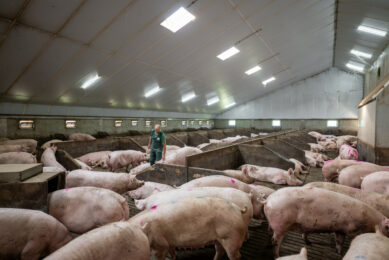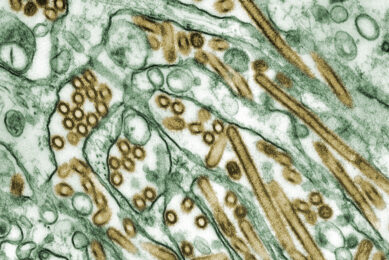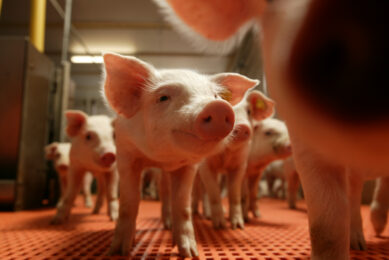Canada: Funds provided to protect hog barns from PEDv

Federal Agriculture Minister Gerry Ritz and Saskatchewan Agriculture Minister Lyle Stewart announced $200,000 in funding, to be matched by Sask Pork, for a contingency fund to help Saskatchewan’s hog industry respond to potential cases Porcine Epidemic Diarrhea (PED) virus.
To date, there have been no confirmed cases of PED in Saskatchewan hogs. “Vigilance towards PED is key to reducing its impact on the Canadian agricultural sector and the economy as a whole,” Ritz said. “This investment will help the Saskatchewan pork industry take proactive measures to stay in front of this disease.”
Governments and industry will provide a total of $400,000 to offset costs related to disease containment strategies, welfare issues, enhanced marketing efforts and mortality management should PED be discovered in Saskatchewan.
“This is a very serious issue and I am pleased to partner with the federal government and industry to further enhancing on-farm biosecurity measures,” Stewart said. “This funding will enable producers to work with their local veterinarian and marketing agencies to contain PED, locate alternate markets for PED positive pigs and ultimately minimize the spread of the disease in Saskatchewan.”
The province already offers the Biosecurity Program which provides $150,000 in funding to Saskatchewan producers for improved biosecurity efforts with $300 for an onsite veterinary assessment and $1,000 for on-site changes to enhance biosecurity. Trucking companies are eligible for $500 to complete a biosecurity audit of their wash facility.
The province has also committed $90,000 in funding for the surveillance of PED at high-risk sites including assembly yards, abattoirs, renderers and truck facilities.
“The swine industry and Ministry staff have been working proactively to prevent this from becoming an issue in Saskatchewan and Canada by educating pork producers on effective biosecurity practices,” Sask Pork General Manager Neil Ketilson said. “We are pleased to see Government stepping up to match the funding that our organization will provide.”
The provincial government has also made PED a notifiable disease in Saskatchewan, requiring laboratories to report the disease to the office of the Chief Veterinary Officer within 24 hours.
Saskatchewan currently has 119 active producers raising 91,900 sows and produces about 2.2 million market hogs.











